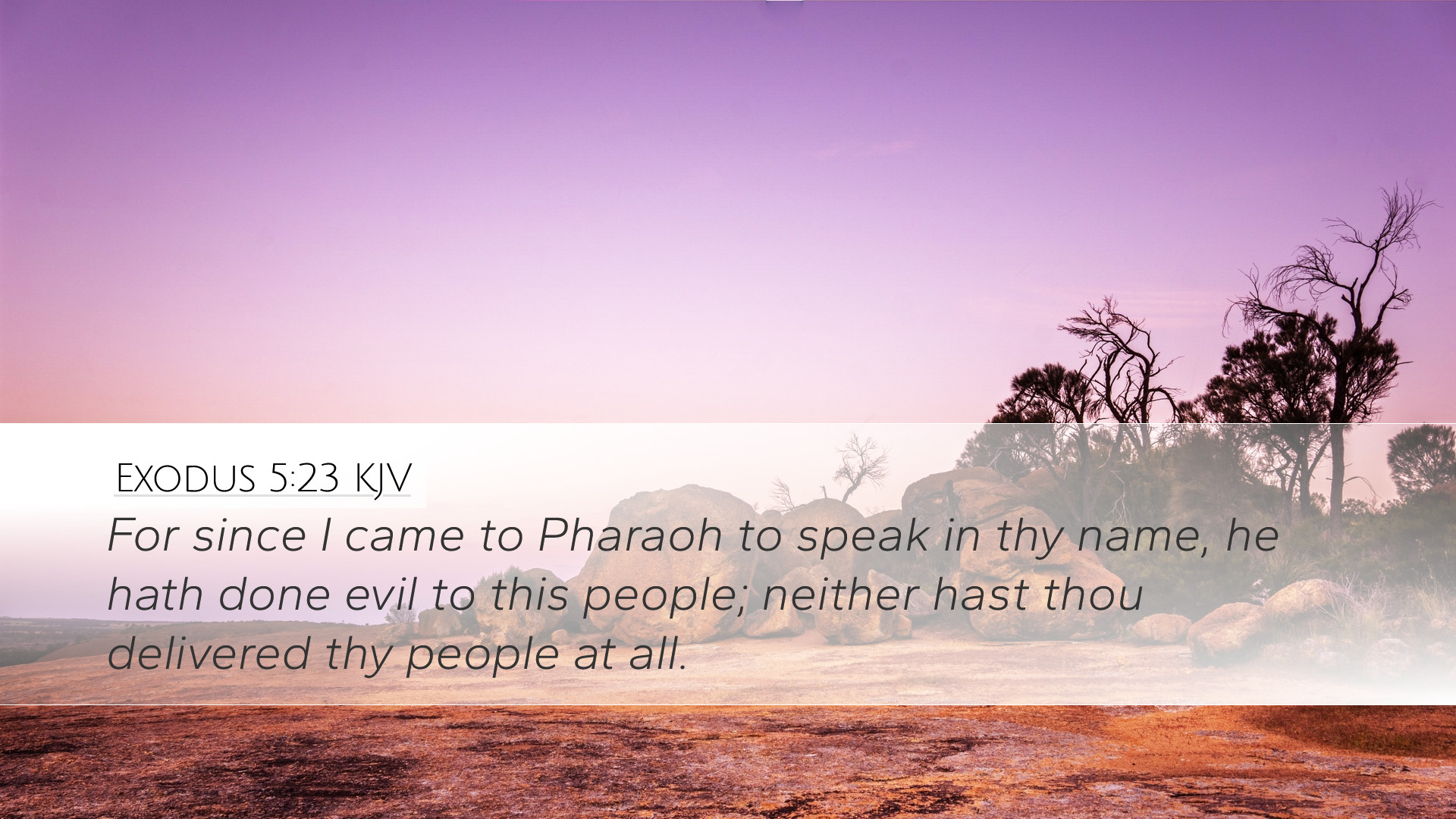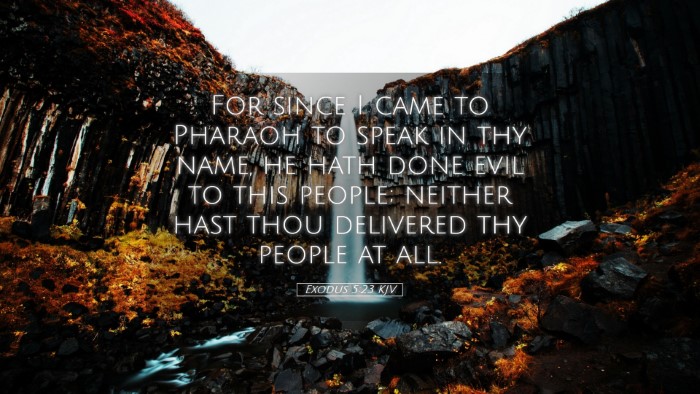Commentary on Exodus 5:23
Verse Overview: Exodus 5:23 states: "For since I came to Pharaoh to speak in thy name, he hath done evil to this people; neither hast thou delivered thy people at all." This verse reflects the deep frustrations of Moses concerning the increased suffering of the Israelites since he initiated communication with Pharaoh.
Contextual Analysis
This verse is situated in a setting where Moses, having been sent by God to liberate the Israelites from slavery, faces significant challenges. After a hopeful beginning where he arrives at Pharaoh's court, the subsequent worsening of conditions for the Hebrew people leads to disillusionment.
- Moses' Expectations: Initially, Moses believed fervently that his mission would yield swift results. His approach to Pharaoh, invoking the name of the Lord, was met with skepticism and hostility.
- Pharaoh's Response: Instead of heeding Moses, Pharaoh increases the labor conditions of the Israelites, seeing them as a threat due to their growing numbers, showing the fierce resistance to God’s will.
- Israel’s Suffering: This highlights a profound lesson: often, the path of faith leads through deep trials. The verse serves as a testament to the struggle that accompanies God's calling.
Theological Insights
Understanding God's Sovereignty: The frustrations expressed by Moses can lead to an understanding of God's sovereignty even amidst apparent failure. While Moses is faced with apparent defeat, God's greater plan for Israel's redemption is unfolding.
- The Importance of Trust: Moses' complaint emphasizes the need for continual trust in God's plan, even when immediate circumstances seem contrary. The believer's journey often involves grappling with doubt, as reflected in this prayerful lament.
- God's Timing: This verse exemplifies the theme of divine timing. Moses learns that God's deliverance may unfold in unexpected ways and times, often through pathways of suffering and oppression.
Commentary Insights
Matthew Henry: Henry explains that the verse illustrates the perplexity and disappointment Moses faced. He comments on the human inclination to measure progress by immediate outcomes rather than by faith in God’s ultimate promise.
Albert Barnes: Barnes notes that the increased burdens on the Israelites should not be seen as a final blow to the mission, but as a necessary step in the spiritual journey toward reliance on God’s deliverance.
Adam Clarke: Clarke emphasizes that the complaints of Moses reflect an authentic dialogue with God, showcasing the need for communication between God and humanity, where raw honesty about one's struggles is welcomed.
Practical Implications
For pastors, theologians, and students, Exodus 5:23 serves as a reminder of the struggles inherent in ministry and leadership. It calls us back to reliance on God, recognizing that His plans may include moments of suffering that ultimately yield greater faith and trust in His deliverance.
- Endurance in Trials: The verse illustrates the journey of faith, where challenges often grow before God’s promises are manifest.
- Encouragement in Leadership: Leaders in the church may relate to Moses' frustrations, finding solace in knowing they are not alone in their struggles.
- Preparation for Deliverance: This passage encourages believers to maintain hope and persevere, understanding that God’s might often reveals itself at the climax of opposition.
Conclusion
In summary, Exodus 5:23 encapsulates a powerful moment of doubt and questioning in the life of Moses, emphasizing the struggle against adversity in faith. It invites believers to engage fully in their journey with God, embracing vulnerability in prayer while anticipating His faithful deliverance.


